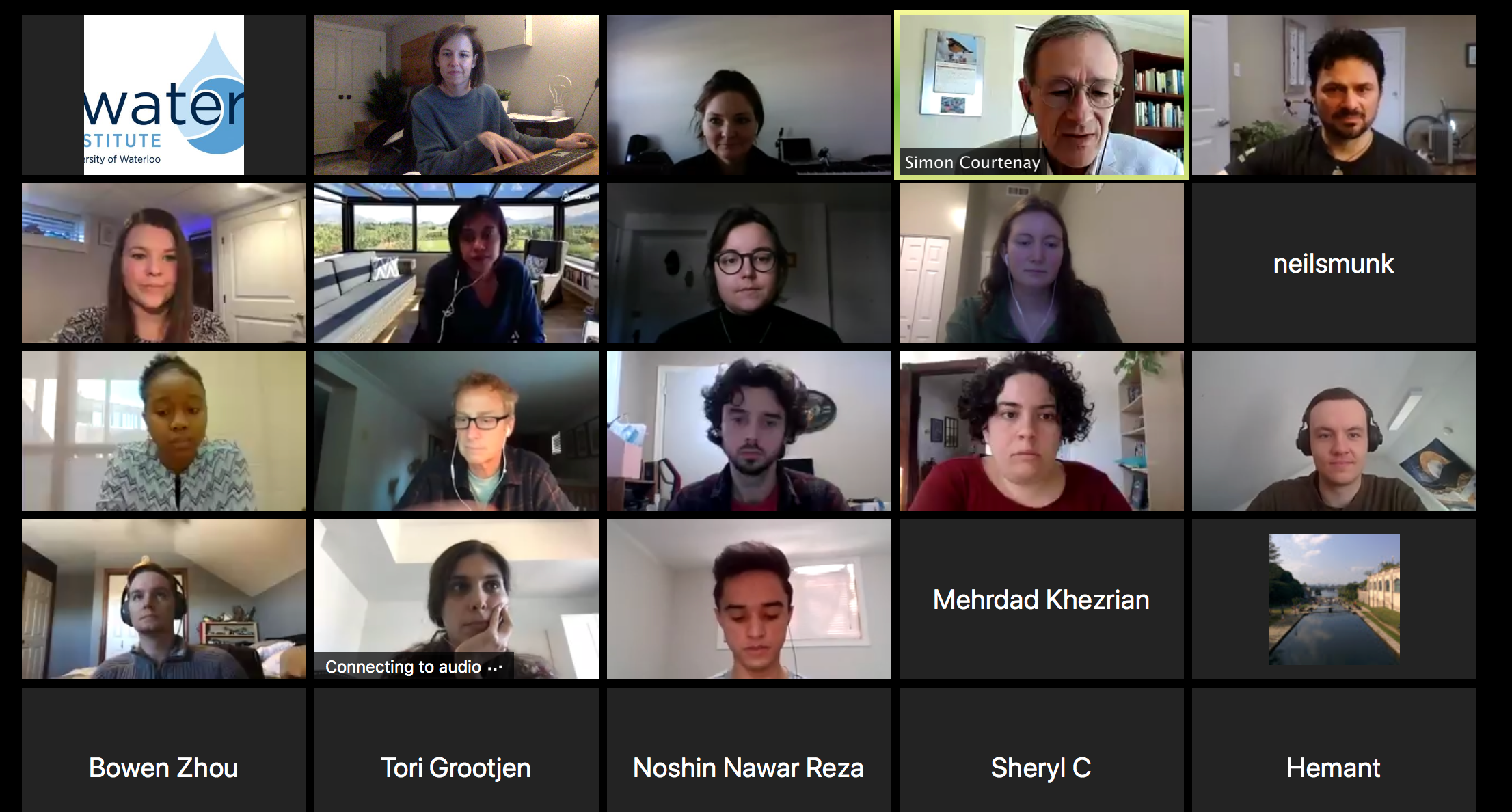On December 2, 34 Collaborative Water Program (CWP) students came together over Zoom to present their Water 602 community projects which made a real-world contribution to a water management issue.

“If Water 601 addresses why we need interdisciplinary approaches to today’s water challenges, Water 602 is about how we actually do that” said course co-instructor Simon Courtenay, professor in Waterloo’s School of Environment, Resources and Sustainability.
“The impacts of Covid-19 accelerated changes to our course plan in order to adapt to the virtual world, and what we landed on was an exciting new opportunity for students to apply the skills they learned in Water 601 to the real world.”
Working in interdisciplinary teams, CWP students were tasked to work collaboratively with community partners to develop a viable project that (1) responds to a need identified by the partner, (2) is achievable within the time frame of the course, and (3) leverages interdisciplinary skillsets. The outcomes of projects ranged widely depending on the community partner needs and each groups’ strengths and interests.
Projects ranged from an evaluation of groundwater remediation efforts by LanXess Canada, consequences of not implementing watershed restoration in Rouge National Urban Park, the impact of floodplain mapping on real estate values in Ontario Canada, communicating Nestlé-Aberfoyle water bottling practices to the local community, and even a case study in Cancun Mexico on how access to water, sanitation and hygiene (WASH) may affect risk of infection in the Covid-19 pandemic.
Students had five minutes to present their projects – which included videos, index tools, posters and infographics – followed by a 10-minute question and answer period during which community partners and professional advisors offered comments and suggestions to each group.
“With field trips cancelled this year, we had to pivot our plan for Water 602,” said Simone Philpot, Post-doctoral Fellow at the Conflict Analysis Group in Systems Design Engineering, and course co-instructor. “It was really wonderful to see how well our students applied their expertise within their interdisciplinary teams to make a contribution to each of the community partners.”
The Collaborative Water Program is jointly offered by 11 University of Waterloo departments and schools, making it the most interdisciplinary graduate program focusing on water in Canada. Since its inception in 2013-14, 341 students have enrolled in the program – including the newest cohort of 48 students who will participate in WATER 601 in the winter 2021 term.